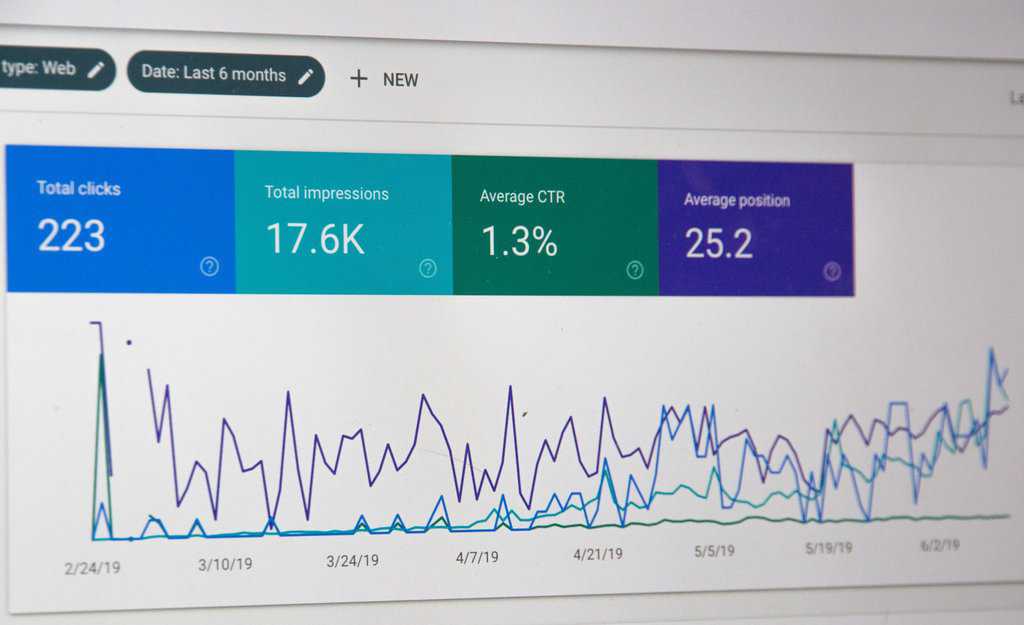In the rapidly evolving digital landscape, search engine optimization (SEO) has become more crucial than ever. As artificial intelligence (AI) technology continues to advance, it is transforming the way search engines function and how users interact with them. To stay ahead in this AI era, businesses need to adapt their SEO strategies accordingly. But where should you begin? Fear not, as we have compiled a list of expert tips that will help you update your SEO strategy for the AI era and ensure your website stays at the top of search engine results pages.
The Growing Influence of AI in SEO
As the prevalence of artificial intelligence (AI) continues to expand in various industries, it is no surprise that AI is also making a significant impact on search engine optimization (SEO). The growing influence of AI in SEO has revolutionized the way businesses approach their marketing strategies and optimize their websites for better search rankings.
One of the key ways AI is transforming SEO is through its ability to analyze massive amounts of data quickly and efficiently. With AI-powered tools, marketers can now leverage deeper insights into user behaviors, preferences, and search patterns. This allows SEO professionals to refine their keyword research and content creation strategies to align with what users are searching for, ultimately improving their website’s visibility and organic traffic.
Furthermore, AI is also impacting how search engines evaluate website content. Search algorithms are becoming increasingly sophisticated in understanding context and user intent, giving more importance to high-quality, relevant content rather than just keyword-stuffed pages. To stay ahead in this new era of AI-driven SEO, businesses need to focus on creating valuable content that addresses users’ needs and engages them effectively rather than solely focusing on keywords.
Overall, as AI technology continues to advance, its role in SEO will only become even more integral. By embracing this growing influence of AI in their strategies, businesses have the opportunity to stay ahead of the curve and achieve better visibility and success in search engine rankings.

Understanding the Role of Machine Learning
Machine learning has emerged as a powerhouse technology, revolutionizing the way we approach data analysis and decision-making. At its core, machine learning involves training algorithms to learn from large volumes of data in order to make accurate predictions or perform complex tasks. This ability to learn and adapt without explicit programming has made machine learning a critical component of various industries.
From improving customer experiences through personalized recommendations to optimizing supply chain management by predicting demand patterns, machine learning is enabling businesses to gain a competitive edge in the AI era. Moreover, it empowers marketers with smarter SEO strategies that can deliver more relevant search results to users. By analyzing vast amounts of data and identifying patterns, machine learning algorithms can better understand user intent and craft content that aligns with their needs, leading to higher visibility on search engine result pages.
However, harnessing the power of machine learning for SEO requires a deep understanding of how these algorithms work and what factors they prioritize when determining search rankings. As machine learning models become increasingly complex and sophisticated, it’s crucial for marketers to stay updated on evolving trends and best practices in order to leverage this technology effectively. By staying ahead of the curve in understanding the role of machine learning in SEO, businesses can ensure they are capitalizing on every opportunity for growth in the AI era.
Optimizing for Voice Search and Virtual Assistants
In today’s AI-driven era, optimizing for voice search and virtual assistants is vital to stay ahead of the competition. With the increasing popularity of smart speakers like Amazon Echo and Google Home, more users are relying on voice commands to search for information. As an SEO professional, it’s important to understand how these virtual assistants work and how they interpret user queries.
One key aspect of optimizing for voice search is focusing on long-tail keywords and conversational phrases. Unlike traditional text-based searches that often consist of just a few words, voice searches tend to be more natural and conversational in nature. By incorporating long-tail keywords into your content strategy, you can better align with the way people speak when using virtual assistants.
Furthermore, ensuring that your website is mobile-friendly becomes even more crucial when optimizing for voice search. Since most voice searches are performed on mobile devices, having a responsive design that allows for seamless navigation and quick load times is essential. Additionally, consider leveraging structured data markup to provide context about your content and make it easier for virtual assistants to understand and present in response to user queries.
By keeping up with the trends in AI technology and understanding how virtual assistants function, you can optimize your SEO strategy to seamlessly integrate with voice search capabilities. Emphasizing long-tail keywords, focusing on mobile optimization, and utilizing structured data markup will help ensure your website ranks well in this increasingly popular mode of online searching.

Leveraging Natural Language Processing for Content Creation
Leveraging Natural Language Processing (NLP) for content creation has become an invaluable tool in the AI era. By utilizing NLP techniques, businesses can not only save time but also create more engaging and personalized content that resonates with their target audience. One way to leverage NLP is by using sentiment analysis to gauge the emotions and opinions of users towards a particular topic or product. This data can then be used to craft content that addresses those sentiments and effectively communicates with users on a deeper level.
Another way NLP can be utilized is through text generation algorithms, which have the ability to produce high-quality, relevant content that aligns with specific keywords or topics. These algorithms are trained on vast amounts of data, enabling them to generate coherent paragraphs or even entire articles. This technology allows businesses to scale their content production efforts while maintaining consistent quality.
In addition, using named entity recognition (NER), another aspect of NLP, can greatly enhance content creation by automatically identifying and categorizing entities mentioned in texts such as people, organizations, locations, dates, and more. By leveraging this information, businesses can tailor their content based on these entities’ attributes or preferences—a powerful tool for personalization.
By harnessing the power of NLP in content creation strategies, businesses stand a chance at gaining a competitive edge in the AI era by delivering highly tailored and engaging experiences to consumers while optimizing their SEO efforts.
Embracing User Experience as a Ranking Factor
In the ever-evolving world of search engine optimization, there is one factor that has gained significant importance in recent years – user experience (UX). Traditionally, SEO strategies have focused on keywords, backlinks, and technical elements to improve rankings. However, with advances in artificial intelligence (AI) algorithms, search engines now prioritize websites that offer a seamless and intuitive user experience.
When users visit a website, they expect to find what they are looking for quickly and easily. If they encounter slow page loading times or confusing navigation, they are likely to bounce back to the search results and try another site. Search engines recognize this behavior and penalize sites that fail to meet these expectations. Therefore, by prioritizing UX optimization in your SEO strategy, you not only improve user satisfaction but also increase your chances of ranking higher in search engine results pages.
To embrace UX as a ranking factor successfully requires understanding what users want from your website. Conducting thorough user research can help identify pain points or areas for improvement within your site’s design and functionality. Implementing features like clear navigation menus, well-structured content hierarchy, responsive designs for mobile devices can greatly enhance the overall UX. Additionally, monitoring metrics such as bounce rate, time on page/site will provide insights into how users engage with your website.

Harnessing the Power of Predictive Analytics
Harnessing the power of predictive analytics is crucial in today’s digital landscape. With the rise of artificial intelligence and machine learning, businesses can now leverage massive amounts of data to make more accurate predictions about customer behavior and market trends. This allows them to stay one step ahead of their competitors and make informed decisions that drive growth.
One key advantage of predictive analytics is its ability to identify patterns in data that humans may overlook. By analyzing historical data, businesses can uncover hidden insights that help them understand how different variables impact their outcomes. For instance, companies can utilize an influence diagram to visualize relationships among variables and their impacts on key business objectives. A retail company, for example, could use predictive analytics to determine which factors influence customer purchasing decisions, such as price, product features, or marketing campaigns. Armed with this knowledge, they can tailor their strategies accordingly and increase their chances of success.
Furthermore, predictive analytics enables businesses to be proactive rather than reactive in their decision-making process. Instead of relying on hindsight or gut feelings, organizations can utilize sophisticated algorithms to forecast future outcomes. By doing so, they can anticipate potential challenges and opportunities before they arise and take proactive measures to optimize results. This not only saves time but also provides a competitive edge by helping companies adapt quickly to changing market conditions.
In conclusion, harnessing the power of predictive analytics is imperative for businesses looking to thrive in the AI era.
Conclusion: Adapting Your SEO Strategy for Success
In conclusion, adapting your SEO strategy for success in the AI era requires a shift in mindset and approach. It is essential to understand that search engines are becoming smarter and more sophisticated, with AI algorithms constantly evolving to provide users with the most relevant and valuable content. This means that traditional SEO tactics like keyword stuffing or backlink manipulation no longer cut it.
Instead, focus on creating high-quality, informative, and engaging content that aligns with user intent. By understanding what users are looking for and delivering valuable information through your website or blog posts, you can increase your chances of ranking higher in search engine results. Additionally, optimizing for voice search is crucial as more people are using devices like smart speakers or virtual assistants to conduct searches.
Remember that SEO is an ongoing process; continuously monitor analytics data, keep up with industry trends, and implement any necessary changes to stay ahead of the competition. With AI playing a larger role in search engine optimization, being adaptable and staying informed will be key to succeeding in this ever-changing digital landscape.
